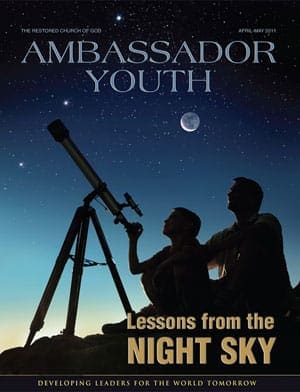Many scenarios play out daily in which someone becomes furious with a shop attendant and makes a scene. You have probably witnessed similar incidents or disagreements multiple times in your neighborhood. Even strife caused by small disputes can explode, sometimes resulting in lost lives.
Strife may initially appear harmless, yet it can be as destructive as nuclear warfare.
Consider the bomb dropped on Hiroshima, Japan, in August 1945. Within seconds, thousands of unsuspecting citizens were evaporated by the blast’s heat. After the mushroom cloud ascended, only a trail of destruction was visible. All because two countries allowed strife and contention to dictate their actions, and chose not to react in a peaceful manner.
A similar situation can occur in one’s life (albeit on a smaller scale) if we are not careful.
The Bible contains a treasure trove of lessons on interpersonal skills. One of them is found in Proverbs 3:30, which states, ‚ÄúStrive not with a man without cause, if he has done you no harm.‚ÄĚ
According to Merriam-Webster‚Äôs Dictionary, ‚Äústrife‚ÄĚ is related to the words conflict, schism, disaccord, friction, disharmony, disunity, variance and war. Strife stems from disagreement, which can result in division.
Think of the atom from the Hiroshima nuclear blast. To split an atom, its core‚ÄĒthe most fundamental part‚ÄĒmust first be divided. Splitting the core is what causes a nuclear explosion.
In the same way, strife can cause friction between ‚Äúcore‚ÄĚ people in your life‚ÄĒyour family and friends‚ÄĒand split apart relationships with them.
For example, you have probably been involved in a discussion in which you tried to prove to a friend you were right about something, yet he disagreed with you. As you continued to explain why you were right and he was wrong, the friend became agitated and angry. This is an instance of ‚Äústriving with a man without cause.‚ÄĚ The act of trying to prove you are right is not a reason to provoke your friend, nor is it a way to keep peace.
Similarly, it is easy to ridicule a peer, especially if others are against him. But you must never do this. Instead, cultivate the mindset of living peaceably with others. Be kind to them, and look past their physical shortcomings, understanding you have your own.
Over time, your peers may notice you do not react as others. This in itself might lead to contention, but conversely it may generate questions about the Church and your beliefs. If you are asked questions in this regard, never reply with a haughty or proud attitude. Instead ‚Äú‚Ķbe ready always to give an answer to every man that asks you a reason of the hope that is in you with meekness‚Ķ‚ÄĚ (I Pet. 3:15).
Offer anyone questioning your beliefs a friendly, short response first, and expand it only if he asks other questions. Do not think you are better than him because you know God’s truth. Keep in mind that in the Millennium your peers will have the same opportunity to learn God’s Way.
Scientists that developed the atomic bomb did not fully realize the destructive power it possessed until it was too late. But by then, the damage was done.
During a quarrel, you might think a situation is under control and there will be no long-term effects. Yet such incidents cause ripple effects, which can ultimately result in ‚Äúwarfare‚ÄĚ between you and the ones closest to you‚ÄĒinstead of ending peacefully.
Remember the example of Japan. Destruction suddenly struck the nation’s citizens. It was such a terrible event that we still remember it to this day.
Strife has the potential to be just as devastating. Will you surrender to contention, or will you strive against strife?


















